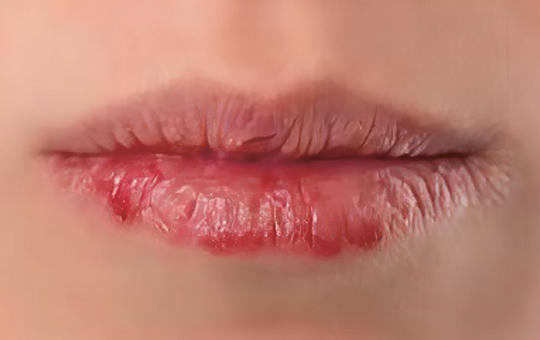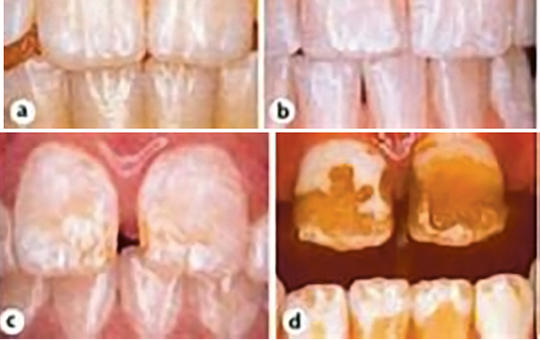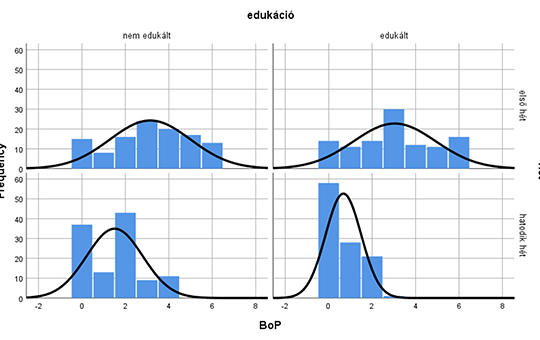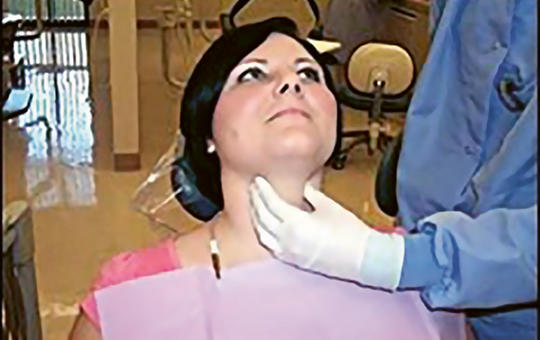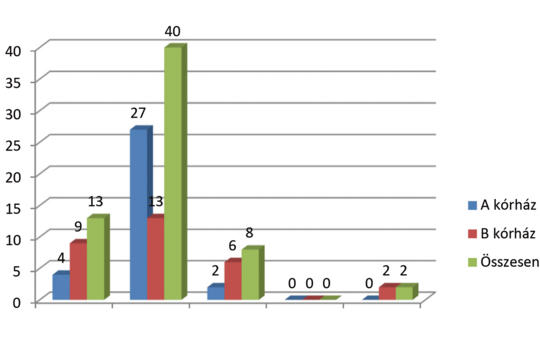The eLitMed.hu medical portal uses computer cookies for convenient operation. Detailed information can be found in the Cookie-policy.
Journal of Nursing Theory and Practice - 2023;36(3)
Content
[Behavioral Factors, Symptoms and Prevention Options are involved in the Development of Oral Cavity Tumors ]
[The incidence of oral cavity tumors is showing an increasing trend, with cause including harmful behaviors, improper nutrition, and inadequate lifestyle. There are many known pre-cancerous conditions, the early diagnosis and treatment of which can prevent malignant degeneration. This is only possible if people conciously pay attention to their oral hygiene and do not neglect regular dental chech-ups. It is important to draw the attention of lay people to this issue in all areas of healthcare.]
[The Preventive Role of the Use of Fluorides and its Importance in Childhood ]
[The use of fluorides is one of the most important areas of dental prevention. It has many beneficial effects on teeth, and it is worth using them starting from childhood. It has an important role in caries prevention and in ensuring the strength of the enamel. However, we must pay attention to take fluoride into our body in moderation. If we don’t act accordingly, we can damage the condition of the teeth and the structure of the bones, to which we should pay special attention during childhood. Fluorosis can be prevented by attention, but adequate information is essential for this, which can be provided by both dentists and dental hygienists.]
[Assessing the Effectiveness of Patient Education Among Periodontal Patients Conducted by Clinical Dental Hygienist ]
[To objectify the positive effect of individualized oral hygiene patient education on the condition of patients suffering from periodontal disease. Also to draw attention to the effectiveness and necessity of patient education in order to motivate the nurse and dental hygienist colleagues to implement individual patient education in practice.
Instrumental measurement-based impact assessment within a focus group with periodontal disease, observing the differences between the condition of patients who received patient education (n=108) and patients who did not received patient education (n=113).
Individual patient education is effective, individual patient compliance is higher and periodontal disease status shows a significantly greater improvement in patients who participated in individual patient education.
The education carried out by clinical dental hygienists can effectively improve the oral health of periodontal patients, thus reducing the disease burden and decreasing the periodontal disease risk effect on the development of other disease affecting the entire human body.]
[Education of Healthcare Professionals about Stomato-oncology Screening Tests]
[In Europe Hungary has the highest prevalence of oral cancer and mortality. That aforementioned case draws attention to the importance of oral screening tests because these types of tumors can be cured easily if we catch them in time. Stomato-oncology screening tests are one of the most painless and easiest examinations considering that it can be effectively done by non-professionals and healthcare workers outside of dentistry. This gives us the opportunity to filter out tumors in early states. This summary publication demonstrates the steps of extra- and intraoral examination and escalates to noticing periodontal deseases and oral cancer.]
[Assessment of Attitude and Nursing Skills Based on Racial, Religious and Ethnical Attributes during Daily Practice ]
[Purpose: The aim of the study to gather detailed report about the knowledge and the manner of the nurses in patients from different cultures.
The study population consists of nurses from two different hospitals (Hospital A and Hospital B). Surveys were applied to assess the knowledge of intercultural nursing. Fifty questionnaires were sent each hospital. Finally, 63 completed questionnaires arrived from Hospital A (nA=33) and Hospital B (nB=30).
Most of the nurses have basic knowledge about transcultural nursing, but it should be improved furthermore.
According to the results, majority of the nurses have elemental experience in transcultural medical care, but it needs further development.]
[Examining the Knowledge of Nurses regarding Negative Pressure Wound Therapy (Part 1)]
[Negative Pressure Wound Therapy (NPWT), as one of the methods of modern wound treatment, is widely used for the treatment of complex wounds both in inpatient and outpatient care and in home care.
Purpose: The purpose of this study is to assess the knowledge of nurses working in the surgical department and who encounter this treatment every day, about wound care with negative pressure.
Cross-sectional, qualitative method with structured interviews. The study sample is nurses working in the surgical department with a minimum OKJ Nursing professional qualification, who have encountered NPWT treatment during their practical work. The investigation took place in July and August of 2021.
Among the interviewed nurses, 9 out of 10 did not encounter this form of wound treatment in their previous jobs. 9 nurses knew the principle on which the equipment works and the effect it has on wound healing. All interviewed nurses were aware of what to pay attention to when caring for a patient receiving NPWT care. According to the nurses, their most important task is to monitor the secretions that empty into the collection tank, both quantitatively and qualitatively. Only 1 nurse out of 10 mentioned that when a large amount of blood appears, the machine must be stopped immediately and the doctor must be alerted immediately. 8 of the nurses were interested in additional information and useful information about NPWT.
The negative pressure therapy has not yet spread widely in Hungary, but at the same time, the nurses who have worked with this wound treatment method are aware of the working principle of the machine. Nurses consider it important to monitor all parts of the equipment, because they are aware that if any part is malfunctioning, the treatment is ineffective. Nurses’ knowledge is based only on their experience and they would like to expand their knowledge of negative pressure therapy.]
1.
Clinical Neuroscience
[Headache registry in Szeged: Experiences regarding to migraine patients]2.
Clinical Neuroscience
[The new target population of stroke awareness campaign: Kindergarten students ]3.
Clinical Neuroscience
Is there any difference in mortality rates of atrial fibrillation detected before or after ischemic stroke?4.
Clinical Neuroscience
Factors influencing the level of stigma in Parkinson’s disease in western Turkey5.
Clinical Neuroscience
[The effects of demographic and clinical factors on the severity of poststroke aphasia]1.
2.
Clinical Oncology
[Pancreatic cancer: ESMO Clinical Practice Guideline for diagnosis, treatment and follow-up]3.
Clinical Oncology
[Pharmacovigilance landscape – Lessons from the past and opportunities for future]4.
5.
